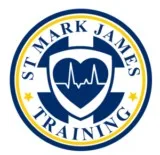Calgary First Aid: Why CPR Quality Matters More Than Ever
Two important studies have revealed that even highly trained medical professionals—doctors, nurses, and paramedics—often struggle to deliver high-quality CPR during real cardiac emergencies. These findings highlight a major issue: CPR skills naturally decline over time, and outdated training may prevent rescuers from meeting current CPR guidelines.
Cardiopulmonary resuscitation (CPR) is a critical first aid skill used when a person is unconscious and not breathing or has no pulse. Effective CPR helps keep oxygen flowing to the brain and heart until a normal rhythm can be restored, often through defibrillation. But as new research shows, performing CPR correctly under real-world pressure is far more challenging than it may seem in a classroom.
The information below is based on findings reported by CBC News.
👉 Read the original article here: Quality of CPR often poor, real-life tests find
What the Studies Found
A CBC report shared results from two separate studies examining CPR performance in real-life cardiac arrests. The findings were striking:
Common CPR Errors
Rescuers frequently struggled with key components of effective CPR, including:
Not pushing hard enough during compressions
Compressing too slowly (guidelines recommend 100–120 compressions/min)
Giving breaths too frequently, disrupting compression rhythm
These mistakes reduce the chances of restoring a heartbeat and protecting the brain.
The Role of New CPR Technology
In both studies, rescuers used an experimental device that measures CPR quality — especially compression depth and rate.
Dr. Lance Becker from the University of Chicago explained:
“You can’t fix what you can’t measure. Performing CPR was like driving a car without a speedometer, based more on feel than on feedback.”
The goal of these devices is to give rescuers real-time guidance, helping them adjust compressions and improve outcomes.
Study Results
In a European study of 176 cardiac arrest cases, rescuers failed to begin CPR quickly enough in nearly half of the situations.
Only 35% of patients had their heartbeat restored with circulation strong enough to prevent brain damage.
In a U.S. study of 67 adults, doctors and nurses failed to follow at least one CPR guideline 80% of the time.
Just 27 patients were successfully revived.
These studies underscore how difficult it is to apply CPR skills accurately during stressful, unpredictable emergencies. They also highlight how vital it is for both professionals and the public to receive current, high-quality training.
Why Learning CPR Still Matters
Despite these challenges, CPR remains one of the most effective ways to Save a life during cardiac arrest—especially when performed quickly and correctly.
Updated, structured training ensures you are prepared to respond confidently when every second counts.
Stay Informed. Stay Prepared.
If you want to be equipped to help in an emergency, consider enrolling in a first aid and CPR course. Updated training helps build confidence and improves survival rates.
Additional Resources
Learn more about CPR and why technique matters:
Serving Calgary and the surrounding areas the lowest priced, highest quality OH&S approved first aid training, CPR and food safety courses for over 15 years!

